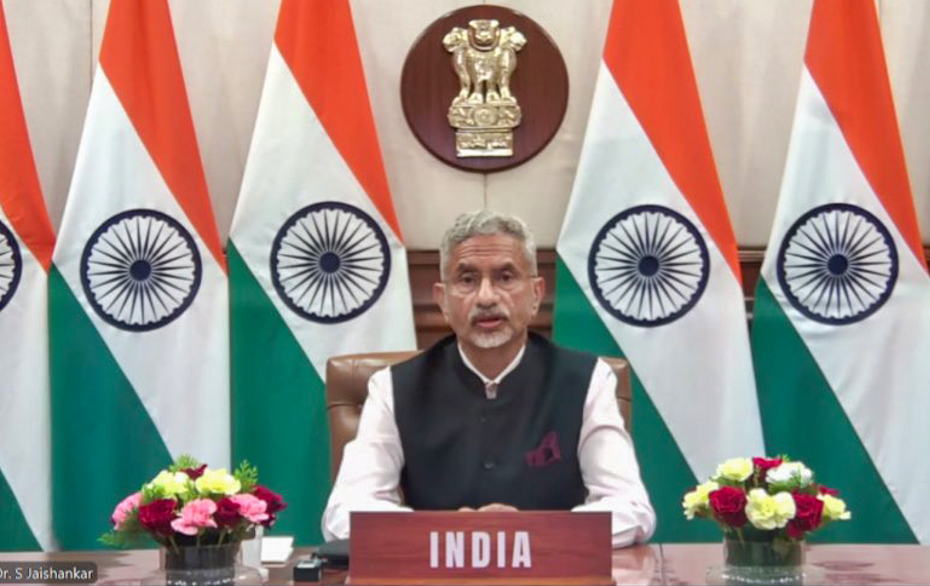External Affairs Minister (EAM) S. Jaishankar on Monday voiced concerns over rising global instability stemming from conflicts, economic volatility, climate crises, and the slowing progress of Sustainable Development Goals (SDGs) at the virtual BRICS Leaders’ Summit.
Representing Prime Minister Narendra Modi at the meeting, Jaishankar emphasised that BRICS should work towards stabilising the international economy, mitigating the impact of ongoing conflicts on the Global South, and proactively supporting reforms in multilateral institutions.
In his address, the minister said, “The state of the world today is a cause for genuine concern. The last few years have witnessed the devastating impact of the Covid pandemic, major conflicts in Ukraine and the Middle East, volatility in trade and investment flows, extreme climate events, and a discernible slowdown of the SDG Agenda. In the face of these challenges, the multilateral system appears to be failing the world.”
He noted that BRICS members, despite their diversity, are all affected by these developments. “Today, the focus is on stabilising the international economy and the world order. But it is equally essential that we turn our attention to ongoing conflicts, not least because they have direct developmental and supply chain implications,” he added.
Jaishankar underscored the need to build resilience in the global economy by creating shorter, more reliable, and diversified supply chains. “When there are multiple disruptions, our objective should be to safeguard against such shocks. It is also essential that we democratise manufacturing and production, encouraging growth across different geographies,” he said.
On trade, the minister called for constructive and cooperative approaches. “Increasing barriers and complicating transactions will not help. Neither would linking trade measures to non-trade issues. BRICS itself can set an example by reviewing trade flows among member states. Where India is concerned, some of our biggest deficits are with BRICS partners, and we have been pressing for expeditious solutions,” he stated.
Reaffirming India’s strong commitment to a rules-based international trading system, Jaishankar said it must remain open, fair, transparent, non-discriminatory, and inclusive, while ensuring Special and Differential Treatment for developing nations.
On conflicts, the minister warned of their far-reaching global consequences. “The Global South has experienced a deterioration in food, energy, and fertiliser security. Where shipping is targeted, not just trade but livelihoods also suffer. Selective protection cannot be the global answer. An early end to hostilities and diplomacy to secure a durable solution is the obvious pathway before us,” he said.
He also renewed calls for reforms in international organisations, particularly the UN Security Council. “Gridlock has undermined the search for common ground on key issues. These experiences have only made the case for reformed multilateralism, especially of the United Nations and its Security Council, more urgent,” he observed, noting that BRICS has taken a positive view of this imperative.
Highlighting climate concerns, Jaishankar said both climate action and climate justice are slipping down the global agenda. He urged fresh initiatives, commending efforts like the International Solar Alliance, the Coalition for Disaster Resilient Infrastructure, and the Global Biofuels Alliance.
Concluding his remarks, he thanked Brazilian President Luiz Inácio Lula da Silva for convening the summit and providing India the opportunity to share its perspectives.
(With inputs from ANI)














